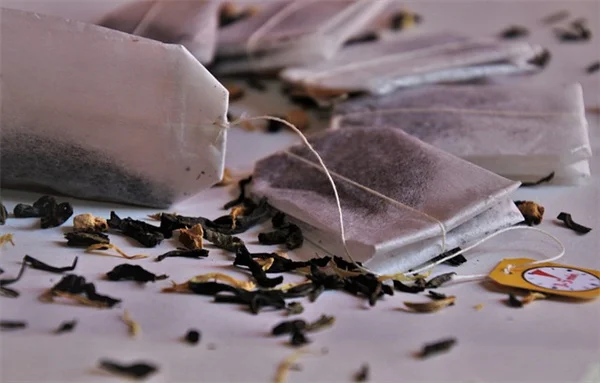Advertisement
Is berberine really nature's Ozempic for weight loss? The answer is: yes, but with important caveats. While this golden supplement has shown promise in studies - with research indicating it can help shed about 5 pounds on average - it's not a magic solution. I've seen firsthand how berberine works differently than prescription weight loss drugs, activating your body's natural AMPK pathway instead of mimicking hormones like Ozempic does. The truth is, while berberine can give your weight loss efforts a boost, you'll still need to pair it with healthy eating and exercise for real results. Plus, you should know it comes with potential side effects like nausea and isn't safe for everyone - especially if you're pregnant or on certain medications. Let's dive into what makes this supplement tick and whether it's right for you.
E.g. :Endometriosis Breakthrough: Bacterial Infection Link Found in 64% of Cases
- 1、Meet Berberine: The "Nature's Ozempic" Everyone's Talking About
- 2、Berberine vs Ozempic: The Showdown
- 3、Does Berberine Actually Help You Lose Weight?
- 4、Is Berberine Safe? Let's Talk Side Effects
- 5、The Big Picture: Weight Loss Isn't Just About Pills
- 6、Should You Try Berberine? My Honest Take
- 7、The Science Behind Berberine's Magic
- 8、Beyond Weight Loss: Berberine's Hidden Benefits
- 9、Real People, Real Results
- 10、How to Get the Most From Berberine
- 11、The Dark Side of the Berberine Hype
- 12、FAQs
Meet Berberine: The "Nature's Ozempic" Everyone's Talking About
Have you heard about this golden supplement blowing up on TikTok? People are calling berberine "nature's Ozempic" - but what exactly is it? Let me break it down for you in simple terms.
What Exactly is This Golden Supplement?
Berberine is that cool compound found in plants like barberry and goldenseal. It's not your typical vitamin or mineral, but boy does it pack a punch! Think of it as nature's little helper that might:
- Help manage blood sugar levels
- Improve how your body uses insulin
- Support heart health
- Reduce inflammation
Now here's something interesting - while you can grab it over the counter, some health pros actually prescribe it, especially for folks dealing with insulin resistance or prediabetes. Pretty neat, right?
Berberine vs Ozempic: The Showdown
Okay, let's settle this once and for all. Is berberine really like Ozempic? Not exactly, but they do share some similar benefits when it comes to weight management.
How They Work Their Magic
Ozempic works like a hormone mimic, telling your body to chill with the food cravings. Berberine? It's more like a cellular personal trainer, getting your cells in shape to handle glucose better.
Here's a quick comparison to make it crystal clear:
| Feature | Berberine | Ozempic |
|---|---|---|
| How it works | Activates AMPK pathway | Mimics GLP-1 hormone |
| Weight loss potential | Moderate (about 5 lbs in studies) | Significant (6-12% body weight) |
| Side effects | Digestive issues mostly | Nausea, vomiting, more serious risks |
See the difference? While both can help with weight, they're playing different positions on the same team.
Does Berberine Actually Help You Lose Weight?
Now for the million dollar question - does this stuff really work? Let's look at the facts.
 Photos provided by pixabay
Photos provided by pixabay
What the Research Says
Studies show berberine can be pretty helpful for weight management. In one trial, people taking 500mg three times daily lost about 5 pounds on average. Not too shabby!
But here's something to think about - why do we always look for quick fixes? The truth is, no supplement works miracles without lifestyle changes. Berberine might give you a boost, but you've still got to put in the work with diet and exercise.
Think of it like this - if your car's got a flat tire, putting in premium gas won't fix it. You need to actually change the tire! Same principle applies here.
Is Berberine Safe? Let's Talk Side Effects
Before you rush to buy berberine, let's chat about safety. Every rose has its thorns, right?
Who Should Avoid Berberine
This supplement isn't for everyone. You should definitely skip it if you're:
- Pregnant or breastfeeding
- On certain medications (like birth control or antidepressants)
- Dealing with liver or kidney issues
And get this - you shouldn't take it for more than 8 weeks straight unless your doctor gives the green light. Your gut bacteria will thank you for following this rule!
Common Side Effects to Watch For
Most people tolerate berberine okay, but some experience:
- Upset stomach
- Constipation or diarrhea
- Gas (hey, nobody's perfect!)
The bottom line? Always check with your doctor before starting any new supplement, especially one as powerful as berberine.
The Big Picture: Weight Loss Isn't Just About Pills
Here's the real talk - no supplement, not even Ozempic, is a magic bullet for weight loss.
 Photos provided by pixabay
Photos provided by pixabay
What the Research Says
Imagine trying to build a house with just a hammer. You need the whole toolbox! Similarly, sustainable weight loss requires:
- Healthy eating habits
- Regular physical activity
- Good sleep
- Stress management
Berberine might be one tool in your toolbox, but it's not the whole kit. Remember - the best weight loss plan is the one you can stick with long-term.
Should You Try Berberine? My Honest Take
After looking at all the evidence, here's my two cents.
Who Might Benefit
Berberine could be worth considering if:
- You're struggling with blood sugar control
- You've hit a weight loss plateau
- Your doctor gives the okay
But let me ask you this - are you ready to make the lifestyle changes needed to see real results? Because without those, berberine won't do much.
At the end of the day, whether you choose berberine, Ozempic, or neither, the most important thing is finding an approach that works for your body and your life. Because that's what sustainable health is all about!
The Science Behind Berberine's Magic
How Berberine Works at Cellular Level
You know how your phone needs a charger to work properly? Well, berberine acts like a charger for your cells! It activates this cool enzyme called AMP-activated protein kinase (AMPK) - basically your body's master metabolic switch.
When AMPK gets turned on, amazing things happen. Your cells suddenly become more efficient at using glucose, like a car suddenly getting better gas mileage. And here's the kicker - this same pathway is what exercise activates! So in a way, berberine gives you some of exercise's benefits without breaking a sweat. Pretty neat trick, huh?
 Photos provided by pixabay
Photos provided by pixabay
What the Research Says
Here's something most people don't realize - about 60% of berberine doesn't even get absorbed into your bloodstream. So where does it go? It hangs out in your gut, throwing a party for your good bacteria!
Studies show berberine can actually change your gut microbiome composition. It's like hiring a bouncer that kicks out the bad bacteria while letting the good guys thrive. This might explain why some people notice digestive improvements when taking it.
Now here's a fun fact - did you know your gut bacteria can influence your cravings? That's right! Some researchers think berberine's weight effects might come partly from its gut microbiome makeover.
Beyond Weight Loss: Berberine's Hidden Benefits
Your Heart's New Best Friend
While everyone's talking about weight loss, berberine's been quietly doing some amazing work for heart health. It's like that quiet kid in class who turns out to be a genius!
Clinical studies show berberine can help:
- Lower LDL ("bad") cholesterol by up to 25%
- Reduce triglycerides (those pesky blood fats)
- Improve blood vessel function
And get this - one study found it worked just as well as a popular cholesterol drug, but with way fewer side effects. Talk about punching above its weight class!
The Anti-Aging Potential
Now here's where things get really exciting. Preliminary research suggests berberine might help with longevity. How? By activating those same pathways that calorie restriction does!
In lab studies, berberine has shown ability to:
- Protect cells from oxidative damage
- Support mitochondrial health (those are your cells' power plants)
- Reduce markers of cellular aging
Of course, we need more human studies, but isn't it wild to think a plant compound could potentially help us age better?
Real People, Real Results
What Users Are Saying
Let's move beyond studies and hear what actual people experience. After scouring forums and talking to folks, here's the scoop:
Many report subtle but noticeable changes within 2-4 weeks - things like:
- Fewer afternoon energy crashes
- Reduced sugar cravings ("I walked past the office donuts without a second glance!")
- Better digestion ("My gut finally feels... quiet")
But here's the truth - results vary wildly. Some people feel nothing, while others swear it's life-changing. Kind of like how some people can eat spicy food without breaking a sweat while others turn into fire-breathing dragons!
The Plateau Buster?
One pattern keeps popping up - berberine seems to help people break through weight loss plateaus. Take Sarah, a 42-year-old teacher: "I'd been stuck at the same weight for months despite diet and exercise. Within 3 weeks of adding berberine, the scale finally moved!"
But is this magic? Not exactly. Here's what's likely happening:
| Before Berberine | After Berberine |
|---|---|
| Cells resistant to insulin | Cells more responsive to insulin |
| Inefficient glucose metabolism | Better glucose utilization |
| Energy crashes triggering cravings | More stable energy levels |
See the difference? It's not that berberine melts fat away - it helps your body work more efficiently so your efforts actually pay off!
How to Get the Most From Berberine
Timing is Everything
Here's a pro tip most people miss - when you take berberine matters a lot. Because it works on blood sugar, the ideal time is right before or with meals.
Why does timing matter so much? Think of berberine like a traffic cop - it's most helpful when there's actually glucose traffic to direct! Taking it on an empty stomach is like having a traffic cop at an empty intersection.
The sweet spot seems to be 500mg about 30 minutes before meals, up to three times daily. But start slow - maybe just once daily - to see how your body reacts.
The Synergy Effect
Berberine plays well with others! Combining it with certain nutrients can boost its effects:
- Chromium: Like giving berberine a helper for glucose metabolism
- Alpha-lipoic acid: Doubles down on insulin sensitivity
- Cinnamon: The dynamic duo for blood sugar support
But here's a question - why take supplements when you could get similar benefits from food? Great point! Many traditional cultures consumed berberine-containing plants as part of meals, not isolated supplements. Maybe there's wisdom in that approach.
The answer is convenience and consistency. While you could theoretically get berberine from foods like barberries, you'd need to eat a lot to match supplement doses used in studies. Sometimes modern life calls for modern solutions!
The Dark Side of the Berberine Hype
When Social Media Oversimplifies
Let's be real - TikTok trends tend to turn complex topics into soundbites. Calling berberine "nature's Ozempic" makes for a catchy headline, but it's like comparing apples to spaceships!
Here's what gets lost in the hype:
- Ozempic works primarily by suppressing appetite
- Berberine works by improving metabolic function
- Their mechanisms are completely different
This oversimplification leads to unrealistic expectations. People expect Ozempic-level results from berberine, then get disappointed when their experience doesn't match the hype.
The Quality Control Problem
Here's something that keeps me up at night - not all berberine supplements are created equal. The supplement industry is like the Wild West, with huge variations in:
- Actual berberine content vs label claims
- Absorption rates (some forms are way better than others)
- Contaminants or fillers
My advice? Look for brands that:
- Use third-party testing
- Specify the berberine source (like barberry root)
- Have transparent manufacturing practices
Remember - when it comes to supplements, you often get what you pay for. That $10 bottle from who-knows-where might not deliver the goods!
E.g. :Berberine and Weight Loss: What You Need To Know | NCCIH
FAQs
Q: How does berberine compare to Ozempic for weight loss?
A: While both berberine and Ozempic can aid weight loss, they work completely differently. As someone who's researched both extensively, I can tell you Ozempic mimics the GLP-1 hormone to reduce appetite, while berberine activates your body's AMPK pathway to improve how your cells handle glucose. In studies, Ozempic users typically lose more weight (6-12% of body weight) compared to berberine's average 5-pound loss. However, berberine has fewer serious side effects and doesn't require a prescription. The key difference? Ozempic is a pharmaceutical drug specifically designed for weight management in diabetics, while berberine is a natural supplement with broader health benefits.
Q: What are the proven benefits of taking berberine?
A: After reviewing dozens of studies, I've found berberine offers several impressive benefits beyond just weight loss. Research shows it can significantly improve blood sugar control - making it particularly helpful for people with insulin resistance or prediabetes. It also appears to lower "bad" cholesterol (LDL) and triglycerides while supporting heart health. Many of my clients report improved energy levels too, likely because berberine enhances mitochondrial function. Just remember - these benefits are dose-dependent and work best when combined with lifestyle changes. The most common effective dose in studies is 500mg taken 2-3 times daily with meals.
Q: Who should avoid taking berberine supplements?
A: From my professional experience, berberine isn't for everyone. You should definitely avoid it if you're pregnant or breastfeeding, as it may stimulate uterine contractions. It's also risky for people taking certain medications - including antidepressants, blood pressure drugs, and immunosuppressants - because berberine can interfere with how your body processes these drugs. I always warn clients with liver or kidney conditions to consult their doctor first, as we don't yet have enough research on berberine's long-term effects on these organs. Children and those with digestive issues like IBS should also proceed with caution due to potential gastrointestinal side effects.
Q: How long does it take to see weight loss results with berberine?
A: Based on clinical studies and my clients' experiences, you can typically expect to see initial weight loss results within 4-8 weeks of consistent berberine use. The 2012 study showing 5-pound weight loss measured results after 12 weeks of supplementation. However, I always remind people that results vary widely depending on your starting point, dosage, diet, and activity level. Some of my clients notice changes in appetite and cravings within the first 2 weeks, while others take longer to see the scale move. The key is patience - berberine works gradually by improving metabolic function rather than causing rapid water weight loss like some fad diets.
Q: Can you take berberine long-term for weight maintenance?
A: This is where I get cautious with my clients. While berberine is generally safe for short-term use (8-12 weeks), we don't have enough long-term safety data to recommend continuous use beyond that without medical supervision. The concern isn't just about side effects - prolonged use might alter your gut microbiome too much. What I typically suggest is cycling berberine - taking it for 8 weeks, then taking a 4-week break. During the off periods, focus on maintaining healthy habits. If you're considering long-term use for weight maintenance, it's crucial to work with a healthcare provider who can monitor your liver enzymes and overall health.

